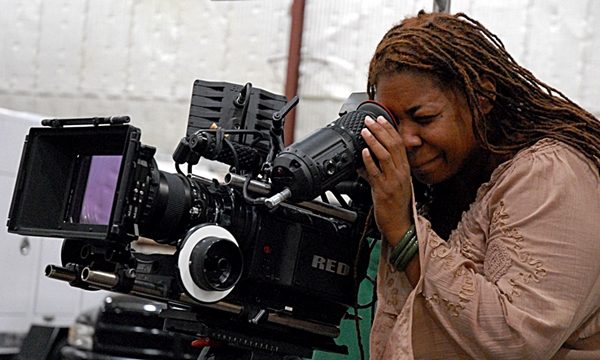Film tax incentives might be raw deal for Mississippi

FILM IT: The Mississippi Motion Picture Incentive, as it’s known, is capped at a maximum of $20 million per year, with a maximum credit of $10 million for a qualifying movie.
By Steve Wilson | Mississippi Watchdog
Plenty of filmmakers have used Mississippi as their backdrop.
Movies such as ”My Dog Skip,” “Huckleberry Finn” and “O Brother Where Art Thou” have taken advantage of the state’s unique man-made and natural scenery.
None, however, got a tax break to film in Mississippi, but that has changed. Mississippi is now in the business of financing movie production, to the tune of some $20 million per year.
To encourage — and persuade — filmmakers, the Mississippi Film Office provides a tax incentive, which, started in 2004, provides a 25 percent cash rebate on in-state production expenses. These include site and equipment rentals, contract labor, goods and services from state vendors, housing, dry cleaning and food and salary paid to out-of-state workers. The rate on salaries paid to Mississippi residents is 30 percent, with an extra 5 percent for honorably discharged military veterans.
The Mississippi Motion Picture Incentive, as it’s known, is capped at a maximum of $20 million per year, with a maximum credit of $10 million for a qualifying movie. To qualify for the incentive, a film project must have a minimum budget of $50,000.
The number of movies filmed in the state has risen steadily, with the James Brown biopic “Get On Up” wrapping after shooting in Natchez and Jackson. Directed by Mississippi native Tate Taylor, the film benefited from the state’s film incentive program. It’s scheduled to be released in August.
According to Stateline, “The Help,” also directed by Taylor and filmed in Clarksdale, Greenwood and Jackson, raked in $3,547,780 from the Magnolia State. The movie went on to gross $169,705,587 in the U.S.
Emails and calls for comment from the film office were not returned.
The Motion Picture Association of America reports eight films shot in the Magnolia State in 2010 and 2011 provided 1,602 direct jobs and $22.9 million in wages to Mississippi.
THE HELP: The block-buster movie was filmed in Mississippi and received more than $3.4 million in tax incentives from the Magnolia State.
Is that a tangible enough payback for taxpayers? Economic effects, long-term, on communities where films were made are negligible. Eight of 10 studies done on the economic effects of tax incentives for filmmakers found states are receiving little, if any, permanent benefit on the dollar.
Matthew Mitchell, a senior research fellow at the Mercatus Institute at George Mason University, said the spread of the subsidies isn’t building a sustainable industry or providing a healthy way for states to compete for new businesses.
Once a state decides to get rid of incentives, the filmmakers simply jump to a state that does.
“I would describe it as a race to the bottom,” Mitchell said. “I think there are two ways for states to compete. There’s the healthy way where states have low taxes, minimal regulations, good services, but no special deals. Then there’s the other, where the business environment stinks and we suspend the rules in regard to businesses.”
There are other costs that don’t show up on the state’s balance sheet. When the relocation of a business is based solely on incentives, it gives power to lobbyists and others trying to influence lawmakers.
“I think it was PJ O’Rourke who said, very pithily, that ‘when buying and selling are controlled by the legislature, the first thing to be bought are the legislators,’” Mitchell said. “When politicians are handing out grants and privileges to industry, the industry is going to get to know the politicians.”
And there are other dark linings on the silver cloud of movie production. When production wraps on a movie, that’s the end of the economic benefit.
“Very often, these states lack the local specialists, and those are the higher-paying jobs. They’re flown in and don’t stick around,” Mitchell said. “Most of the local jobs created are in construction and don’t last once the film goes away.”
Mississippi isn’t the only state to provide tax incentives for film production. Forty-five states are offering various incentives to the filmmakers.
Neighboring Louisiana — where “21 Jump Street” and “Django Unchained” were among the 44 movies and nine TV series filmed there — offers a 30 percent incentive plus up to an added 5 percent for payroll to Louisiana residents.
Georgia, where the hit AMC series “The Walking Dead” is filmed, has a unique incentive program. The state’s base incentive rate for TV and movie productions is 20 percent, but if the production uses an embedded Georgia logo it receives an extra 10-percent incentive.
Louisiana and New Mexico in 2002 were the first states to start offering tax incentives to help bankroll the production of films, hoping companies would build permanent production facilities. But since the highly trained and specialized workforce tends to remain in the industry’s two main hubs, Hollywood and New York, the likelihood of building a third center is a pipe dream for other states, Mitchell said.
“This is not an industry that is going to set down roots,” Mitchell said. “It’s a highly mobile one. Forty-five states think that they can be the next Hollywood, and there’s no reason to believe that it’s going to be permanent.”
Contact Steve Wilson at swilson@watchdog.org
The post Film tax incentives might be raw deal for Mississippi appeared first on Watchdog.org.







